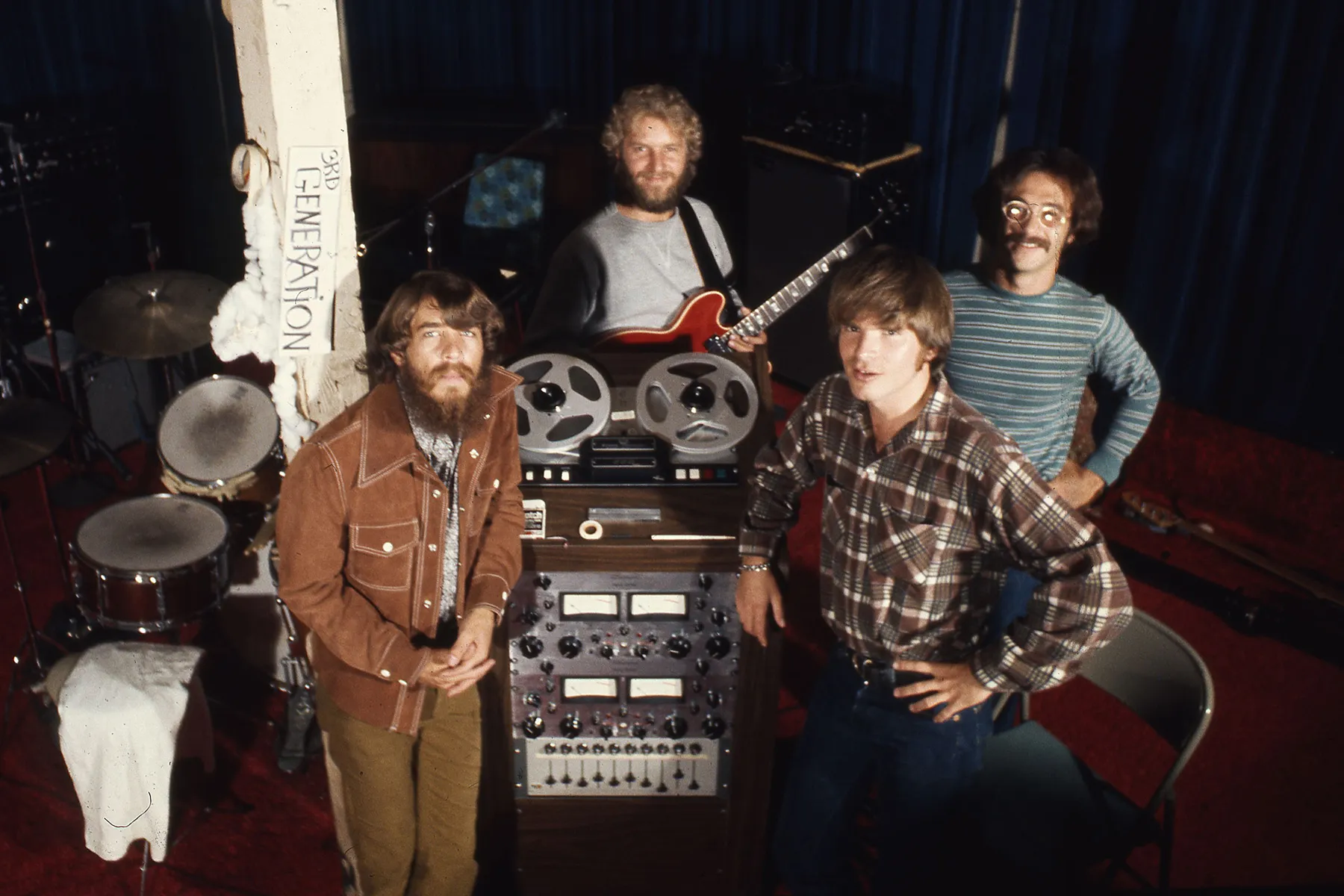
“Green River” is a postcard from a lost summer—CCR turning childhood memory into motion, where the water keeps rolling and the world can’t quite catch you.
Some songs don’t begin so much as they arrive—already dusty with sun, already humming with the sound of a screen door closing, already scented with river mud and cut grass. “Green River” is one of those songs. When Creedence Clearwater Revival released “Green River” as a single in July 1969, it wasn’t just another slice of late-’60s rock. It was a compact little miracle: two minutes and change that felt older than the decade that birthed it, as if John Fogerty had reached into a private past and pulled out a whole landscape.
On the charts, the song arrived with force and stayed with purpose. “Green River” rose to #2 on the Billboard Hot 100, held from the top for a week by The Archies’ “Sugar, Sugar,” and was later ranked by Billboard as the No. 31 song of 1969—a neat bit of irony, because nothing about it feels like a trend. Its B-side was “Commotion,” a pairing that says a lot about CCR’s gift: they could offer nostalgia and nervous electricity in the same breath.
One month later came the album that carried it like a banner: Green River, released August 7, 1969. And here is the kind of “ranking at launch” that matters for the long memory: Green River became CCR’s first #1 album on the Billboard 200, beginning a four-week run at the top starting October 4, 1969. In a year when everything felt loud—politics, culture, guitars—CCR climbed to the summit with songs that were lean, plainspoken, and strangely timeless.
But the heart of “Green River” is not the number beside it. It’s the story behind it—the way Fogerty wrote a “bayou” song that wasn’t truly about the bayou at all. In a 2012 Rolling Stone interview quoted in the song’s background notes, Fogerty explained that what listeners hear as Southern atmosphere was really his own life, his own childhood place: Putah Creek near Winters, California—a family vacation spot he renamed in his imagination. Even the phrase “Green River” itself, he said, came from a soda syrup label—one of those tiny, ordinary objects that somehow becomes a lifelong trigger for memory.
That is why the song feels the way it does: not like a travel brochure, but like recollection. “Green River” isn’t chasing realism; it’s chasing the truth of how places live inside you. It’s the sound of a secret swimming hole you can still point to with your eyes closed. The song’s world is full of small, tactile details—dragonflies, bullfrogs, rope swings—because that’s how memory talks when it’s honest: not in speeches, but in flashes.
And then there’s the deeper tenderness: the idea that no matter how scorched the outside world becomes, there is a place you can return to—at least in your head. The last verse brings in Old Cody Junior, a character tied to the real-life cabin Fogerty remembered (with a connection to Buffalo Bill Cody in the lore around that place). It’s a strange, almost storybook touch—half myth, half autobiography—and it gives the song its lasting ache: childhood as refuge, not because it was perfect, but because it was yours.
Musically, CCR make the whole thing feel effortless, which is the hardest trick in rock and roll. Fogerty openly framed “Green River” as a nod to the Sun Records spirit—a tip of the hat to the rocking, economical language of early American records. That’s why it moves the way it does: no wasted corners, no indulgent detours, just a tight, rolling groove that feels like forward motion on a two-lane road.
In the end, “Green River” endures because it offers something rare: nostalgia without syrup, escapism without denial. It remembers a place, yes—but more than that, it remembers a feeling: the moment you first believed the world might be wide and kind, and that you might outrun whatever waited beyond the trees.
Put the needle down, and the river comes back.
Not as a museum piece.
As a living current—still rolling, still calling, still green.